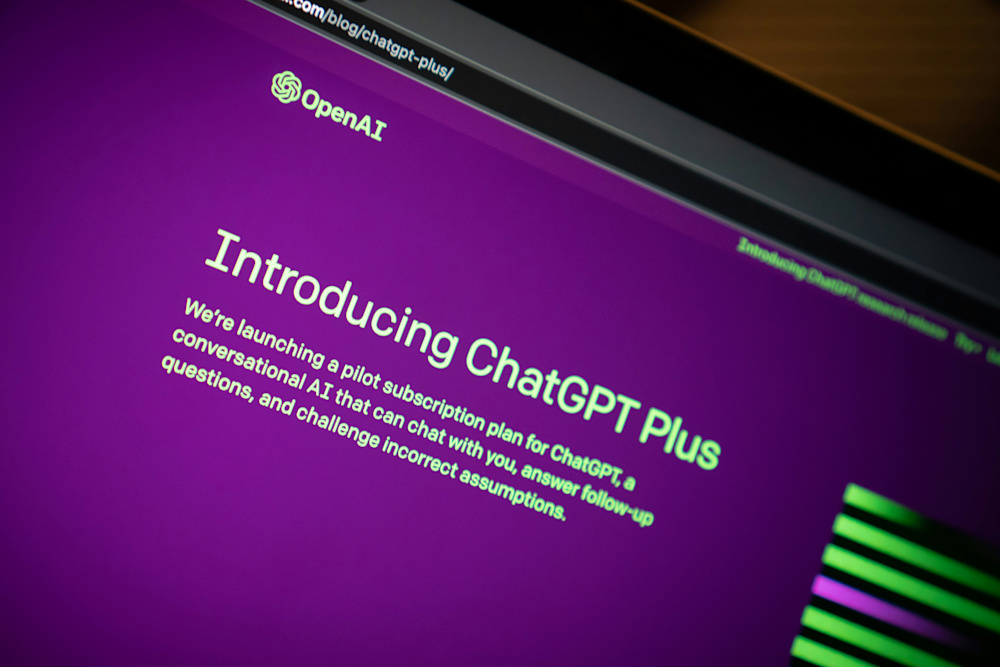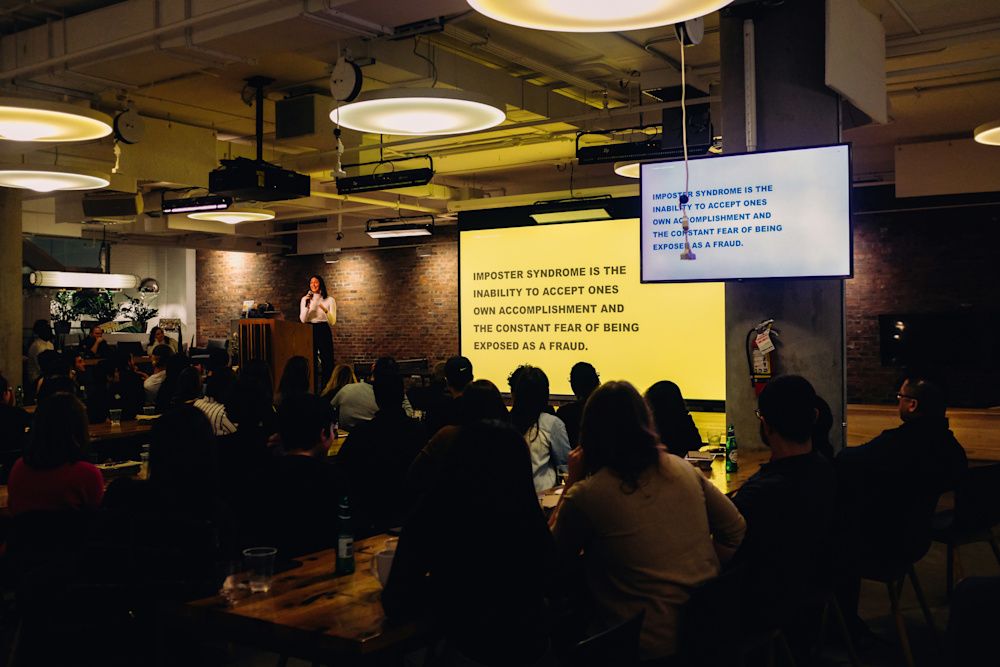Updated November 14, 2025
Landing My First Developer Job As a Coding Bootcamp Grad: Alternative Approaches to the Resume Grind
“We sincerely appreciate your application to ______ and thank you for considering us among your choices.
After careful consideration, we regret to inform you that we have decided not to proceed with your application at this time.
Although the current opportunity did not align with your profile, we wish you continued success in your future endeavors.”
Months of job hunting, hundreds of applications, and an average 10% response rate.
Of the 10% responses, 100% automated rejections like the above example.
Vague.
Non-actionable.
Was my application ever truly “carefully considered”?
This left the other 90% of unrequited applications.
A void in the abyss never to be returned.
And me?
An aspiring software engineer living in Tokyo with my wife and newly born son.
I was looking to break into Japan’s tech industry, but there was a catch.
A few, actually.
I had zero professional coding experience.
Nor did I have a computer science degree.
Nor did I have a JLPT certification.
And, as a result, my application never stood a chance to be seen. Up against the fancy automated HR pipelines, I was being turned away at the front gate.
It took some time to step back and reassess my approach. And given the results, it was fairly obvious.
I needed to find another way. Applying for jobs through traditional active job listings just wasn’t working.
And so, I changed my game plan.
The focus was simple: no more throwing resumes and cover letters into a black hole.
Simply, get noticed.
Whether hired or rejected, I was going to actually be “carefully considered”.
I wasn’t going to let a single document of headers and bullet points determine my future.
This is my personal take on how I diversified my job hunt, and instead of waiting for opportunities, I made my own.
Spoiler alert: Eventually, I became a software engineer in Japan.
But it didn’t come easy.
In this article: 📝
Starting from no experience
It took a COVID-19-sized event to change my mind about being a “technical guy”.
Originally from the States with a background in Literature, I’d been living in Japan for 4 years. Even though I was born and raised in the Silicon Valley, before living in Japan, I didn’t have any interest in code.
During the pandemic, I was just a junior high school teacher, bouncing around like a ping pong ball. A relay between school administrators, government policies, and anxious parent emails.
Eventually, I was burnt out by this lack of control. It was beginning to take a toll on my students, my marriage, and my own mental health.
Amidst the chaos were blossoming success stories from coding bootcamp graduates. Stories about people joining the tech industry who’d never typed a single line of code in their lives.
And not just any people.
Fellow foreign residents in Japan.
Former teachers, recruiters, translators, and others. They seemed like the few minorities thriving during this unprecedented time.
So it felt like a no-brainer for me. If they could do it, why couldn’t I?
Starting from the basics of HTML, CSS, and JavaScript, I learned how to build static webpages.
Classroom landing pages.
Wedding invitation templates.
Hobby portfolios.
Everything spelled GeoCities to Xanga level of polish and eloquence. But there was no denying I felt excitement in my work.
Because, despite the rudimentary quality, I was making small progress. I was connecting the dots between writing code and interacting with it.
Something I had thought originally impossible for someone like myself.
Whether it was a true calling or misguided optimism, I put my faith in these projects.
I set out to become a software engineer.
An entry-level software engineer in the year of “The AI Boom”

Then, 2 years later.
It’s 2023.
The same year, the World Health Organization officially declared the COVID-19 pandemic over.
The same year, I finished an advanced, full-stack engineering coding bootcamp.
The same year, my son was born.
The same year, everyone started using ChatGPT.
The year of “The AI Boom”.
Then, a pattern of mass layoffs and unemployment emerged in the global tech scene.
Not to mention, a lot fewer junior-level positions.
Yeah, things weren’t looking too good for me.
I spent days scraping through job boards and researching companies. I tailored resumes and cover letters to match keywords, requirements, and mission statements.
But no matter what I seemed to do, it simply felt like my applications weren’t reaching anyone.
At this point, my personal projects would blow the socks off my GeoCities webpages.
But it wasn’t enough, at least for the automated HR tools. I was simply a bootstrapped, self-taught coder with zero professional experience.
Or rather, a potential liability in a now unforgiving hiring environment.
And at this point, I wanted to throw in the towel.
Moreso, I now had my son, who was relying on me to get my act together.
But in the end, I concluded I’d give it one last shot.
I paused on the resume submissions and attacked the market from different angles.
And after doing so, I enhanced my 10% response rate to 55% in just a few months.
And of that 55% weren't 100% automated rejections anymore.
No, this time it included interviews, take-home assessments, referrals, and offers.
And of course, a lot of rejections, but more importantly, most of them came directly from a human.
So how did I finally get around the system?
Alternative solutions to getting noticed for a developer job with no experience
It was exactly what I said and nothing more.
I made my own opportunities.
That’s it.
I didn’t wait for jobs to pop up.
I popped up to jobs.
In 2023, I knew by now that by the time a job listing was public, I was already too late.
Either someone more qualified was already in the race, or a bot had filtered me out.
And so I needed to think outside the box.
How could I ensure my true capabilities were better represented than a resume?
Meetups

The first approach I tried was an obvious choice.
Attend meetups.
The literal antithesis to the digital paper process.
Human face-to-face interaction.
Meetups are still a popular solution preached for finding a job in the current economy.
Fortunately for me, I lived in Tokyo, where these events were bountiful.
I attended a couple of drinking gatherings and a seminar on UI/UX design principles. And although I never landed a job on the spot, I did manage to extend my network and, most importantly, get noticed.
I spoke with folks from both the local and international tech scene. This included engineering managers, tech leads, recruiters, founders, CTOs, and much more.
And by the time I’d leave, most were at least interested in staying connected. A couple were even willing to send me a direct job link to a position they were scouting for.
This alone already merited better results than before.
Unfortunately for me, the timing wasn’t the best. A lot of these meetups were held after hours to accommodate regular working folks.
In my case, the late nights weren’t ideal while supporting my wife and newborn son at home.
It didn’t help that I’m relatively introverted, either. It’d take a lot of energy to physically go out, socialize, and present myself to strangers.
I’d leave with new LinkedIn connections, business cards, or a QR code for a fresh job listing. But after exiting the loud venue, I’d always feel so exhausted on that silent train ride home.
That said, I definitely see the value – especially for newcomers to the industry. If you live in a city and consistently put yourself out there, you’ll have a good chance of finding something.
Not to mention, most meetups don’t cost more than 1,000 yen, plus a drink and the commute. It’s generally low risk, with potentially high return value.
Leveraging LinkedIn
Since I couldn’t fully take advantage of late-night events, I tried to find another way. Ways in which I could keep everything within my own hours and time.
I realized it was time to dust off the dormant LinkedIn profile I’d created years ago.
Hate it or love it, LinkedIn is the professional hub. And a valuable tool if you know how to work it.
The ability to openly share your narrative and pull others in can work wonders. Using LinkedIn in this way is a viable alternative approach to the job hunt.
While I’m not an avid sharer, I did spruce up my account enough and received fairly decent results.
I also didn’t pay for any premium memberships, but I did change my job preferences to “Open To Work”.
Like dropping crumbs in a koi pond, I sat back and waited for folks to come to me. Soon enough, I was receiving a regular number of requests each week.
With every request, I’d take the time to gauge each person closely before adding or rejecting them.
Did they, their company, or their experiences look interesting?
If yes, I’d add them.
I’d then introduce myself with an initial DM, inviting them to a 30-minute chat to get better acquainted.
9 times out of 10, the individual would gladly accept.
And truthfully, although most interactions were civil, some weren’t smooth.
I ran into a handful of pushy recruiters and a shady business deal that didn’t work out.
Always remember, even when you’re desperate for a job, you have to know when to draw the line.
Otherwise, it did help me build a stronger digital network and opened the door to new leads. One call was an unexpected on-the-spot interview for a solid company. Others were sympathetic folks who provided advice and feedback on my job hunt.
And the great thing was, whether good or bad, I was interacting with actual people on my own time.
But all in all, don’t forget. You are opening yourself to strangers across the web. A better incentive for you to also familiarize yourself with how to spot “black companies” in Japan.
Making my own job
And last but not least, I had a random idea.
Why don’t I just make my own job?

I realized a lot of things about the state of the post-pandemic world. And it wasn’t just the damage caused, but also the consequential opportunities.
The pandemic was a wake-up call for businesses. Both big and small, to reevaluate their relationship with tech.
It was clear that the top picks in the tech industry were now more difficult to apply for.
But what about alternative job markets?
Or even better.
A job market more closely aligned with my non-technical side and interests.
I already had over half a decade of teaching under my belt.
Not to mention years spent in other lines of work.
Out of my entire lifespan, programming was one of the shortest chapters so far. Yet it was eclipsing so many other areas of expertise I could bring to the table.
Furthermore, I had a handful of projects that I’d developed over the past 2 years, some with active users.
Many of these projects came from my time during the coding bootcamp.
And the most impressive one was a full-stack travel application, built in collaboration with cohortmates.
It wasn’t just a product of our endless days and nights of coding. It showcased our love for leisurely travel in Japan. And it was a sustainable solution we thought of, to reinvigorate local businesses suffering losses post-pandemic.
There just had to be places or people who could find value in these experiences and projects.
I then discovered a marketable niche in Japan’s ed-tech, tourism, and travel industries.
I researched across the nation for companies, websites, and applications from these categories.
I interacted with their products, downloaded their apps, and took scrupulous notes.
I mapped user flows and design choices.
What were the defining features and layouts?
What was working well and what wasn’t?
Most importantly, could I seamlessly fit a feature I’d already built into their product?
Afterwards, whether there was an active job listing or not, I reached out directly to the company.
I started with a brief introduction. Who I was, and why I was genuinely interested in joining their forces as a software engineer.
Then I’d list out the positive attributes acknowledged in their current set-up. I’d follow it up with things I also noticed as opportunities for growth. More specifically, ways I could potentially incorporate a project’s feature as a solution.
This was my moment to shoehorn in a demo applicable to what I was pitching. I’d attach a link to one of my live apps or a video recording showcasing said capabilities.
Following this, I’d wrap up the email inviting collaboration.
Send.
Then wait.
It didn’t take long, and my first inquiry received a response.
Then the next one.
And within two weeks, I didn’t have just one, but a list of active applicant processes.
Eventually, I landed my first freelance opportunity for an ed-tech company. They were intrigued by my experience as a teacher. And they wanted me to help them implement a new streaming feature for their ESL materials.
Following this, I received another freelancing opportunity with a travel company. This time, in direct response to the features and solutions I’d highlighted in an email.
I freelanced a bit with the travel company and eventually became a full-time employee.
Although a scrappy solution that required a great deal of effort on my part, it all paid off.
I really enjoyed having direct weight in the application process. And since I was pitching most jobs, I had a final say in what I could or couldn’t do, both technically and non-technically.
Which is why it's important to understand Japanese labor contracts and employment types.
All in all, this was my backdoor idea to finding a job in today’s market.
Final remarks
If you’re currently struggling to find a job, sincerely, good luck.
Since 2023, it doesn’t look like it’s getting any easier.
But with resilience and a willingness to try new things, you can at least regain some control.
And while this all fortunately worked for me, this is not intended as a definitive guide. If I haven’t made it clear enough, none of this is straightforward.
Most importantly, you cannot afford to stop growing and bettering your technical skills.
It may seem like getting past the front gate is the biggest challenge now. But technical assessments are waiting behind the entrance doors. And learning how to handle a rejection after 4~6 rounds of interviews is another hurdle.
Furthermore, if you want to work in Japan as a software engineer and you haven’t moved yet, and if time and allowances permit, I’d recommend the following:
Get at least 2 years of experience at home first
Get applicable computer science degrees/certifications
Pass the JLPT N2
Had I possessed one or all of the above, I don’t think I would’ve needed to hustle as hard as I did. There are a good number of companies in Japan open to candidates with the above criteria.
And even without experience, with one or two of the above, I’ve heard others land jobs fairly quickly. Not to mention, they’d be beneficial in the long run for a future in Japan as well.
But if you’re here for the long haul—like me—and you’re staring into the foggy valley of job application ghostings, maybe it’s time to change how you’re looking for work in Japan.
Get Job Alerts
Sign up for our newsletter to get hand-picked tech jobs in Japan – straight to your inbox.









